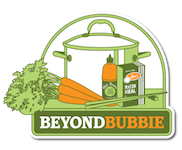April 4, 2014
Author: Susan Kepner
We never called her Bubbie. We called the lady named Anuschka Serdahely Fulop “Grendma,” because that’s what she called herself.
Phone: ring-ring
Grendma: “Sveeetheart, det’s you GRENDma!”
Me, Susie, age 9: “Grandma, the second I hear your voice I know it’s you.”
Grendma: “Vell suuure!!! Det vould’n be me, who vould det be? Suu-sie, you van’ go pick cherries at Mrs. Thomas house? Cherries is ripe, Grendma and Mrs. Thomas is going make cherries jam, but old ladies too fet to climb in det tree.”
Susie: “Sure, I love the cherry tree. And the palacsinta with cherry jam. Will you make some?”
Grendma: “Vell, sure!” Sveetheart, I van’ to know vat is right talking English… [Oh no, oh no…another grammatical abyss yawns before me.] One voman, two vomen, three vomans? Det’s right?”
Susie: Uh, yes – yes, that’s right. [I knew better than to ever get into this kind of conservation.]
Grenda was born in Hungary in 1884. First kitchen job at age 6: standing on a box in the kitchen kneading bread on the wooden table top at the crack of dawn every morning.
“If I am not turn det bread, punch det bread hard enough my mudder will kick me ven she valk by.” At 19, Grendma immigrated to Milwaukee to join her sister, and was forced to marry Janos Fulop at age 20. Many years later when my cousin went to tell Grendma that she was leaving her husband because she didn’t love him anymore, Grendma said, “Yo!, I marry to you grendfather 17 years – who loved him?”
She started the butcher shop in a neighborhood then called Johnson’s Woods. There she made the soon to-be-famous Hungarian sausages, especially the spicy orange ones that people would line up around the block to buy on Saturday morning.
She dragged beef carcasses across the yard, chopped countless heads off countless chickens, ducks, and sometimes a goose.
“Sveetheart, you dasn’t make duck or goose – det’s too much fet. Det’s real dangerous, you drop det fet on you foot – oh boy.”
While she dragged, hauled, toiled, and rendered lard for every purpose, the grandfather I never met played his violin on the front steps of the shop, “sitting on det step, he is drinking warm red vine from a pan on da stove all day. He never like Milwaukee.”
When I was a girl, the menu for Thanksgiving at Grendma’s was set in stone. Turkey, stuffing made with chicken livers and parsley, duck, fried chicken, rice pilaf, beets (beets were a holy food in Grendma’s house, harvested from sacred beet plot beside the garage.)
Grendma would stand at the head of the table with a glass of “Morgen David” in hand, look around at all her sons and the rest of us, and say, “Tenks God ve is all healt’y!”
Salad was called “sha-lah-day.” Every time, she would turn to my step-grandfather and ask, “Old man, you van’ shalahday?” And every time, he would answer, “No! I don’ van no shaladay. I don’ like shalahday.” My brother and I still say this when passing the salad.
And then, when all the uncles were torpid, seeming acres of retes [strudel) that had been cooling under towels on the back porch were put before us. Apple, poppy-seed, and walnut. And after that, the piece de resistance would be carried into the dining room on a vast tray by Grendma.
Small glass dishes of shimmering, red American Jello, “Sveethearts, now is come – Jello!” Brought to us by Grendma, who happened to be born on the 4th of July.

